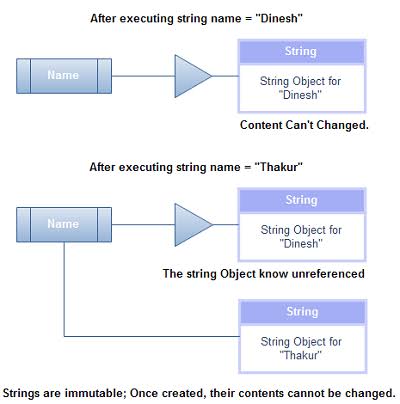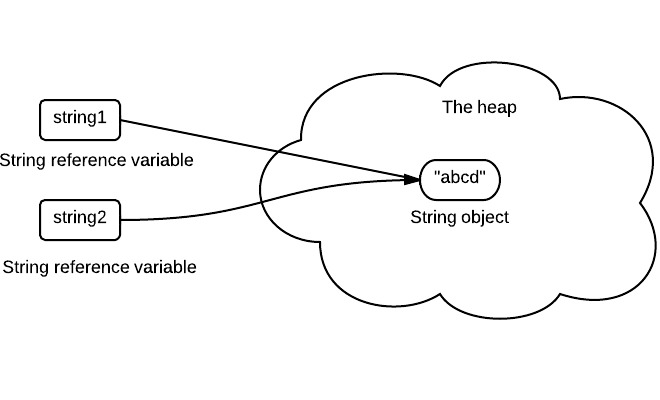Why Are Strings Immutable in Java? Comprehensive Evaluation for Programmers
Why Are Strings Immutable in Java? Comprehensive Evaluation for Programmers
Blog Article
Unalterable Strings: A Secret Component in Ensuring Data Consistency and Integrity
In the realm of data management, the value of unalterable strings can not be overstated. These unvarying sequences of characters play a pivotal duty in supporting the integrity and accuracy of details within systems. By maintaining a state of immutability, data uniformity is guaranteed, promoting a structure of integrity upon which crucial processes rely. The concept of unalterable strings transcends plain triviality; it is a cornerstone in the facility web of data administration. As we check out the advantages, application strategies, and useful applications of immutable strings, a clearer image arises of their important nature in securing the digital landscape.
The Concept of Immutable Strings
Unalterable strings, an essential principle in shows, refer to strings that can not be customized as soon as they are produced. In significance, as soon as a string worth is appointed, any kind of operation that appears to modify the string in fact produces a new string. This immutability guarantees information uniformity and reliability in applications, as it avoids unanticipated modifications to the initial information.
Benefits in Data Consistency

Information consistency is essential in numerous elements of software program advancement, including data source monitoring, multi-threaded environments, and dispersed systems (Why are strings immutable in Java?). Unalterable strings contribute significantly to accomplishing this uniformity by protecting against data corruption due to concurrent access. In scenarios where multiple procedures or strings engage with the very same data simultaneously, unalterable strings function as a protect versus race conditions and synchronization problems
Additionally, the immutability of strings simplifies debugging and testing processes. With immutable strings, programmers can trust that once a string is established, it will continue to be the same, making it less complicated to trace the source of mistakes and guaranteeing that test instances generate constant outcomes. This integrity in information managing ultimately leads to more durable and secure applications.

Executing Immutable Strings
Guaranteeing the immutability of strings requires a thoughtful method to their execution in software application growth. Once a string item is created, one key method is to create string classes in a method that avoids modifications. By making strings immutable, developers can improve data consistency and integrity in their applications.
To carry out unalterable strings effectively, developers need to favor producing new string items instead of changing existing ones. This technique guarantees that as soon as a string is assigned a worth, it can not be transformed. In addition, any kind of procedure that appears to customize the string needs to develop a new string with the preferred modifications as opposed to modifying the original.
Furthermore, utilizing unalterable strings can streamline concurrency monitoring in multi-threaded settings. Considering that unalterable strings can not Source be transformed after development, they can be securely shared among several threads without the danger of information corruption.
Role in Integrity Assurance
In software development, the use of immutable strings plays an important role in guaranteeing the reliability of information operations. Immutable strings, when developed, can not be changed, guaranteeing that the information they represent remains constant throughout the application's execution. This immutability building provides a degree of assurance that the information being processed will not be inadvertently altered, bring about unexpected outcomes or mistakes in the system.
By including immutable strings into software design, developers can enhance the integrity of their applications by minimizing the risks connected with mutable information - Why are strings immutable in Java?. Unalterable strings assist in preventing data corruption or unintended adjustments, which can be particularly vital when dealing with delicate info or when data honesty is paramount
Furthermore, making use of immutable strings simplifies concurrent handling, as multiple threads can safely accessibility and share string data without the danger of one string changing the web content while another is reviewing it. This aspect contributes significantly to the total reliability of the software program system, making sure regular and predictable behavior in data dealing with procedures.
Applications and System Integration
The seamless integration of immutable strings right into different applications and systems is critical for ensuring robust data uniformity and dependability throughout varied technological environments - Why are strings read immutable in Java?. Unalterable strings play a critical duty in improving the stability of data exchanges and communications within complicated software ecological communities. By incorporating immutable strings right into applications, designers can mitigate the dangers linked with data meddling, unauthorized alterations, and unintentional alterations, thereby strengthening the overall security position of the system
Immutable strings can boost interoperability between disparate systems by supplying a standard style for information depiction, allowing a lot more effective data handling and exchange procedures across interconnected platforms. By taking on immutable strings in applications and system integration procedures, companies can fortify their information facilities and support the integrity and uniformity of their info assets.
Conclusion
In conclusion, unalterable strings play an essential function in keeping data consistency and reliability in different applications and system assimilations. By making sure that strings can not be changed as soon as produced, the stability of information is preserved, decreasing the threat of disparities and mistakes. Carrying out unalterable strings can considerably boost the dependability of systems, eventually bring about even more accurate and dependable data processing.

Report this page